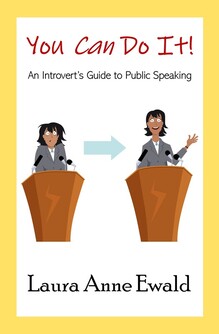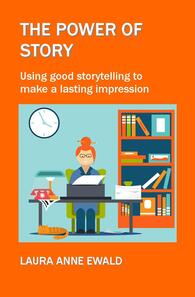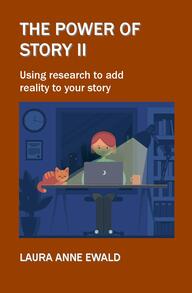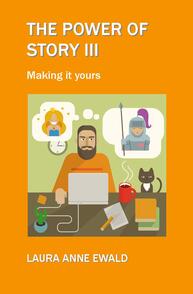NONFICTION
See also Public Speaking

You Can Do It!
An Introvert's Guide to Public Speaking
You can successfully learn to stand up in front of any audience and present on any topic, if you put the effort into becoming a public speaker. Speaking publicly is less about talent and more about preparation and technique. The purpose of this book is to help you to understand what you need to become an effective speaker and to give you the tools you need to put it all together for an effective public presentation. Will it take away all your fears and doubts? No one can promise that. But I can promise you will find herein the tools to effectively overcome those fears, those doubts, long enough to successfully present the next time your boss, your organization president, a civic leader, or your pastor looks directly at you and says, “That should be the topic of our next meeting; who wants to volunteer?” And who knows? You might, like this introvert, discover that with enough preparation and practice, you can actually get pretty good at it.
An Introvert's Guide to Public Speaking
You can successfully learn to stand up in front of any audience and present on any topic, if you put the effort into becoming a public speaker. Speaking publicly is less about talent and more about preparation and technique. The purpose of this book is to help you to understand what you need to become an effective speaker and to give you the tools you need to put it all together for an effective public presentation. Will it take away all your fears and doubts? No one can promise that. But I can promise you will find herein the tools to effectively overcome those fears, those doubts, long enough to successfully present the next time your boss, your organization president, a civic leader, or your pastor looks directly at you and says, “That should be the topic of our next meeting; who wants to volunteer?” And who knows? You might, like this introvert, discover that with enough preparation and practice, you can actually get pretty good at it.

The Power of Story
Using good storytelling to make a lasing impression
From the days of living in caves, man has presented a whole lot more than “just the facts” when talking about anything going on in the world. Even in those pictures painted in the dark, deep inside the caves of Europe and elsewhere, man was telling a story, for the artists did not only illustrate the hunt, they created a pictorial narration of what went on...
The storyteller has been revered since long before we could read and write for just this reason. It was the storyteller, the bard, who kept traditions alive from one generation to the next. Their stories not only entertained; they educated. They gave us, as a people, a center and an identity. It was the storytellers, traveling from town square to village green, from stage to campfire, who told the stories that kept us connected—to one another, to our past, and to our future...And if you think the importance of story has been lost over the centuries, then you haven’t attended a John Grisham book-signing event or waited in line at an opening of a new Star Wars movie…!
Using good storytelling to make a lasing impression
From the days of living in caves, man has presented a whole lot more than “just the facts” when talking about anything going on in the world. Even in those pictures painted in the dark, deep inside the caves of Europe and elsewhere, man was telling a story, for the artists did not only illustrate the hunt, they created a pictorial narration of what went on...
The storyteller has been revered since long before we could read and write for just this reason. It was the storyteller, the bard, who kept traditions alive from one generation to the next. Their stories not only entertained; they educated. They gave us, as a people, a center and an identity. It was the storytellers, traveling from town square to village green, from stage to campfire, who told the stories that kept us connected—to one another, to our past, and to our future...And if you think the importance of story has been lost over the centuries, then you haven’t attended a John Grisham book-signing event or waited in line at an opening of a new Star Wars movie…!

The Power of Story II
Using research to add reality to your story
For writers of stories, research is NOT an option—even when writing fiction. Why not? Because research is the thing that puts reality into a story, allowing your readers to participate in the “suspension of disbelief” we, as storytellers, need for our stories to work.
The old adage from an early writing instructor who said, “Write what you know,” is simply incomplete. What you must remember is how you know what you know can vary with what you’re writing. Stories are certainly quicker and easier to write if our characters work at a job we’ve had or live in a city in which we’ve lived, but that doesn’t mean we can’t ever write about what we don’t know right this minute, as long as we do the research first, so we do know it, before we write the story.
Albert Camus once wrote, “Fiction is the lie through which we tell the truth.” I couldn’t agree more, but it is critical to get the facts right within the lie so as to capture and keep the attention of our readers. It really is all about the details, because if you get the details wrong, you could lose your audience...
Using research to add reality to your story
For writers of stories, research is NOT an option—even when writing fiction. Why not? Because research is the thing that puts reality into a story, allowing your readers to participate in the “suspension of disbelief” we, as storytellers, need for our stories to work.
The old adage from an early writing instructor who said, “Write what you know,” is simply incomplete. What you must remember is how you know what you know can vary with what you’re writing. Stories are certainly quicker and easier to write if our characters work at a job we’ve had or live in a city in which we’ve lived, but that doesn’t mean we can’t ever write about what we don’t know right this minute, as long as we do the research first, so we do know it, before we write the story.
Albert Camus once wrote, “Fiction is the lie through which we tell the truth.” I couldn’t agree more, but it is critical to get the facts right within the lie so as to capture and keep the attention of our readers. It really is all about the details, because if you get the details wrong, you could lose your audience...

The Power of Story III
Making it yours
One of the questions often asked of writers is, “How do you begin a story?” This is, of course, much like asking an artist how he paints what he paints or how she sculpts what she sculpts. Where do songwriters begin—with the music or the lyric? Creativity comes from many sources, and for most writers I know, a story can come from any number of places, with most writers citing more than one, depending upon the story...But have you ever picked up a book or a magazine article that looked interesting then started to read it only to find the author was more interested in preaching than storytelling? This can happen all too easily, if we’re not careful. Most writers have something important to say, whether writing fiction or nonfiction, but it is just as important to think strategically about our subject matter lest we become so immersed in whatever issue we’re tackling that our story gets lost in the argument. Writing can change minds and hearts, just as performance drama can, but beware of biting off more than you can comfortably chew and letting the topic eclipse the story rather than letting the story illuminate the topic...
Making it yours
One of the questions often asked of writers is, “How do you begin a story?” This is, of course, much like asking an artist how he paints what he paints or how she sculpts what she sculpts. Where do songwriters begin—with the music or the lyric? Creativity comes from many sources, and for most writers I know, a story can come from any number of places, with most writers citing more than one, depending upon the story...But have you ever picked up a book or a magazine article that looked interesting then started to read it only to find the author was more interested in preaching than storytelling? This can happen all too easily, if we’re not careful. Most writers have something important to say, whether writing fiction or nonfiction, but it is just as important to think strategically about our subject matter lest we become so immersed in whatever issue we’re tackling that our story gets lost in the argument. Writing can change minds and hearts, just as performance drama can, but beware of biting off more than you can comfortably chew and letting the topic eclipse the story rather than letting the story illuminate the topic...
More Nonfiction Titles
Your browser does not support viewing this document. Click here to download the document.
Please see the attached file for my list of book reviews:
| 2011_reviewed_books.pdf | |
| File Size: | 67 kb |
| File Type: | |
This website and its content is copyright of Laura Anne Ewald, © 2022. All rights reserved.